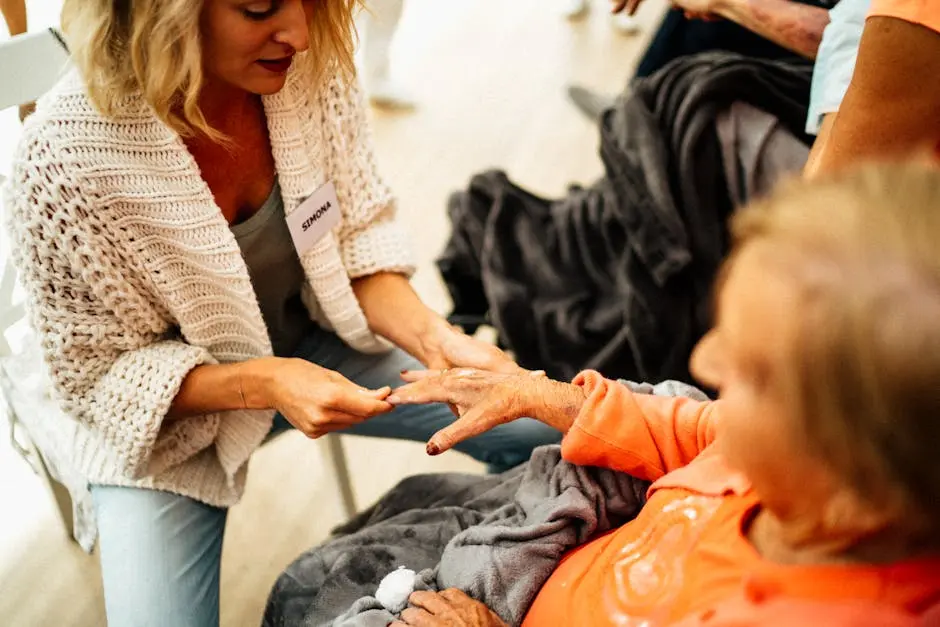In a world where independence is highly valued, the significance of companion care can often be overlooked. Yet, for many, having a companion can transform daily living, making it not just bearable, but joyful and fulfilling. This post explores the multi-faceted benefits of companion care, shedding light on how it supports both physical and emotional well-being.
The Essence of Companion Care
Companion care represents a special kind of support that’s not only about providing practical assistance but also about creating meaningful relationships. It’s the understanding that everyone, regardless of their age or health conditions, has an intrinsic need for connection and companionship. This service bridges the gap for those who live alone or whose families can’t be present due to various circumstances, ensuring they have someone to share life’s moments with, both big and small.
Beyond assisting with daily activities, companion care focuses on enriching a person’s life through social interaction, companionship, and shared experiences. Providers work tirelessly to learn about the individual’s interests, preferences, and life stories, fostering a deep, personal connection. This personalized approach not only supports mental and emotional well-being but also contributes to a higher quality of life by recognizing the person’s value and uniqueness.
Promoting Independence Through Support
While it may seem counterintuitive, companion care plays a crucial role in promoting independence among the elderly and those requiring support to live at home. By assisting with tasks that may have become challenging, companions enable individuals to maintain a sense of self-sufficiency. Instead of imposing solutions, companion care providers encourage participation and collaboration in daily tasks, fostering an environment where individuals feel capable and empowered.
The philosophy of companion care centers around the belief that everyone has the right to live with dignity and autonomy. By custom-tailoring their support, companions ensure that individuals can continue to pursue their hobbies, engage in social activities, and live their lives according to their terms and preferences. This tailored support is a lifeline for many, sustaining not only their physical abilities but also their spirits and willpower.
The Emotional and Psychological Benefits
The impact of companion care on emotional and psychological well-being is profound and multi-dimensional. Regular social interaction and companionship can significantly reduce feelings of loneliness and isolation, common concerns among the elderly. Having someone to talk to, share meals with, and engage in leisure activities can greatly improve mood and outlook on life, demonstrating the immense power of human connection.
Moreover, the consistent presence of a companion can offer comfort and reassurance, contributing to a safer, more secure living environment. For individuals suffering from memory ailments like dementia, a companion’s presence can provide a sense of stability and normalcy, easing anxiety and confusion. These benefits underline the holistic approach of companion care, addressing not just physical needs but emotional and psychological health.
Companion Care in Action: Real-life Examples
To truly understand the impact of companion care, one need only look at the stories of those whose lives have been changed by it. There’s the tale of an elderly widow who rediscovered her joy for painting with the encouragement of her companion, or the story of a young adult with disabilities who, with assistance, was able to volunteer at a local animal shelter. These stories exemplify how companion care goes beyond daily assistance, inspiring confidence and rejuvenation in the spirit.
Another compelling example is a retired professor who, feeling isolated in his later years, found companionship in a care provider with a shared passion for history. Together, they attend lectures and visit museums, reigniting his zeal for learning and engagement with the world. These narratives affirm the transformative potential of companion care, illustrating its role not just in maintaining but enriching and expanding the horizons of those it serves.
How to Choose the Right Companion Care
Selecting the right companion care service is a decision that requires careful consideration and research. It’s important to look for providers known for their compassion, professionalism, and commitment to personalizing care to the needs and preferences of each individual. Families should also consider the range of services offered, ensuring that physical, emotional, and social needs will be adequately met.
Understanding the training and background of caregivers is equally critical, as is ensuring they have the skills to provide not just companionship but also support with daily tasks, if required. Compatibility between the caregiver and the recipient of care is fundamental for a successful relationship, so look for organizations that prioritize matching based on interests, personality, and temperament. Ultimately, the right companion care service should feel like an extension of one’s family, bringing peace of mind to all involved.
The Heartfelt Impact of Companion Care
Companion care goes beyond mere assistance; it’s about enriching lives and providing a sense of warmth and companionship that everyone deserves. As we’ve seen, its impacts are profound, offering not just practical help but also emotional support that can significantly enhance one’s quality of life. Whether for yourself or a loved one, considering companion care is a step towards embracing a more supported, connected, and joyful life.


